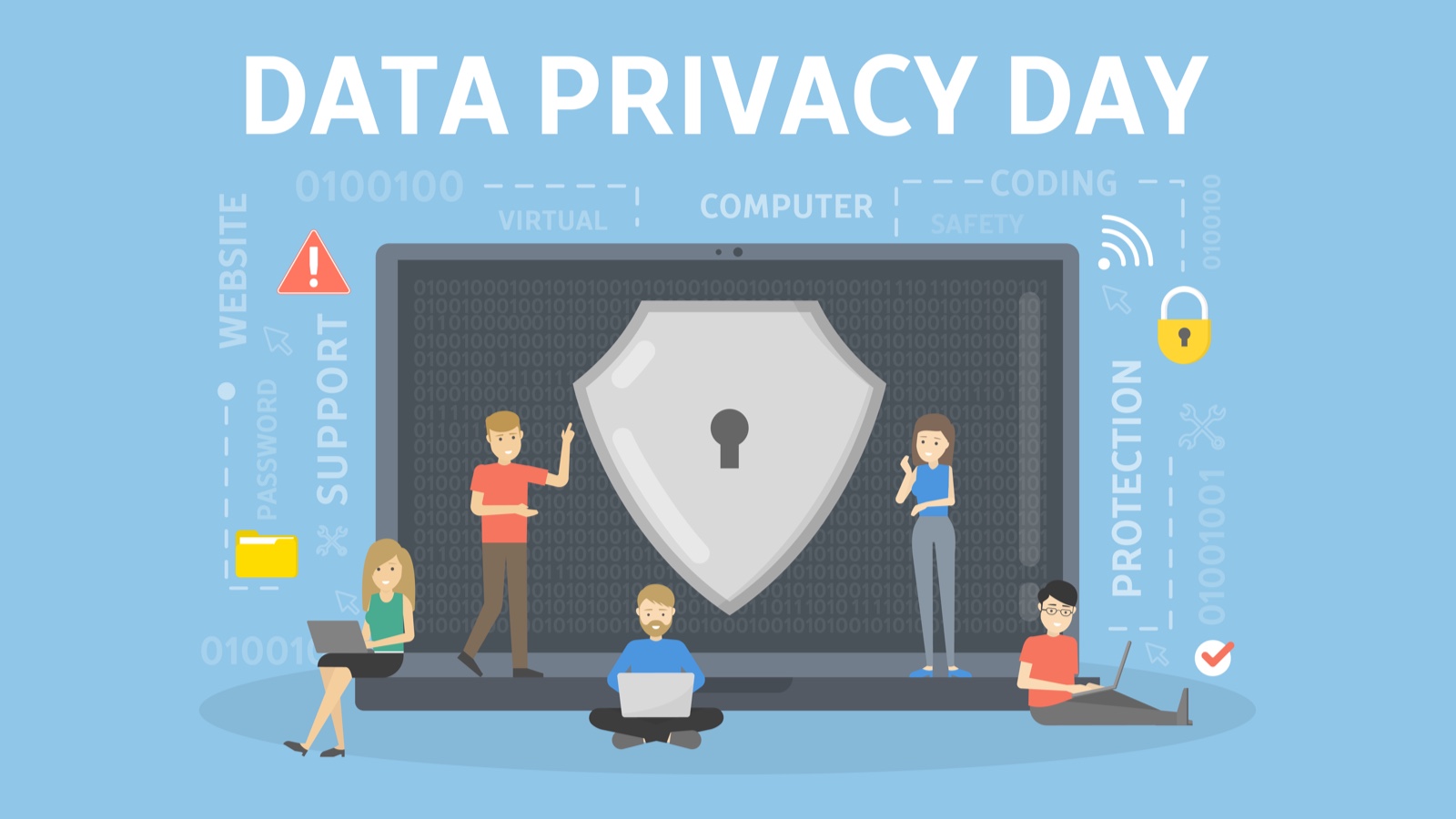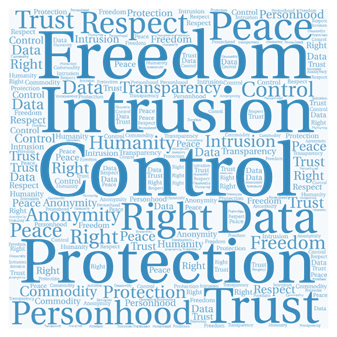Boiling thoughts down to six words highlights what people consider to be the most important dimensions of a topic. On Data Privacy Day 2021, we look into the topic of privacy through the lens of the University of Michigan's Six Words about Privacy project.

In 2010, Michele Norris launched the Race Card Project, which invited people from all walks of life to say—in six words—what "race" means to them. Hearing Norris at the 2018 EDUCAUSE Annual Conference, where she was a general session speaker, Michael Corn of the University of California, San Diego (UCSD) and Sol Bermann of the University of Michigan, Ann Arbor (U-M) decided to try something similar at their institutions, focused not on race but on security and privacy. They debuted Six Words on Cybersecurity at UCSD and Six Words about Privacy at U-M, inviting members of their campus communities to submit six words describing what security and privacy meant to them. Listen to this podcast to hear from Corn and Bermann about how they got their projects started.
Data Privacy Day is a perfect opportunity to look at what people submitted at U-M and see how they understand and relate to privacy today. We analyzed the words that have been submitted since the inception of the project and sorted them into thematic groups. Of the almost 250 words, 14% refer to the notion of having control and being able to make choices when it comes to privacy. The second most popular theme, with 12% of the words, involves freedom, autonomy, and self-determination. In third place, with 11% of all words, come security and protection. Close behind are the themes of intrusion, rights and equality, trust and integrity, personhood and identity, and peace and comfort (see table 1).
Table 1. Most common words submitted, organized into themes
| Word | Theme | Percentage of total |
|---|---|---|
|
choice, choose, control, consent, options, allow, ability, permission, ownership, agency, empowerment, ask first, expectation |
Control |
14% |
|
freedom, free, autonomy, alone, independence, self-determination, liberty, self-expression, uncensored, expression |
Freedom |
12% |
|
secure, security, safe, safety, protected, protection, accountability, breach avoidance, non-hacked, VPN |
Protection |
11% |
|
ogling, peeping, snoops, intrusion, intrusive, harassment, rape, sacrifice, vulnerable, manipulatable, weaponized, unsolicited, objectify |
Intrusion |
5% |
|
right, rights, equality, justice |
Right |
5% |
|
trust, integrity, confidence, confident, assured, assuredness, irrefutable |
Trust |
5% |
|
my, mine, myself, self, personhood, personal, citizen, identity |
Personhood |
4% |
|
peace, peace of mind, calm, quiet, comfort |
Peace |
4% |
|
information, data |
Data |
4% |
|
respect, dignity, user first |
Respect |
3% |
|
anonymity, anonymous, incognito |
Anonymity |
3% |
|
human, humanity, being, empathy |
Humanity |
3% |
|
transparency, transparent, visibility, clarity, readable |
Transparency |
2% |
|
commercialized, commodity, monetize, tracker |
Commodity |
2% |
Privacy: Does It Matter in the End?
Privacy is subjective, elusive, nuanced, complex, polarizing, and possibly deceased. It's a lost cause, a liability, a quest, a way of life, a nemesis, and a hope for the future.

We did not see these specific words among the submissions in our Six Words about Privacy project. What we did see were almost 250 words, echoing each of these notions and more, and weaving the fabric of privacy at the University of Michigan.
Having Control and Being Able to Make Choices
Almost 14% of all submissions remind us about the importance of having power to make decisions about privacy. Academic institutions are generally trusted when it comes to privacy, largely because they are seen as having constituents' interests at heart.Footnote1 At U-M, we do not take that trust for granted. We work hard to ensure appropriate use of personal data, create transparency around data practices, and educate our community on what they can do to take control and protect their privacy.
Freedom, Autonomy, and Self-Determination
Thirty of the submitted words center around privacy as a fundamental right. The US Constitution does not directly mention privacy, but a number of our civil liberties are dependent on it: the freedom to express your thoughts and participate in social and political activities; the freedom to decide with whom to associate; and the right to limit authority's oversight. With the ability to reveal as much or as little about yourself as you like comes the freedom to be yourself, grow, and develop as an individual. These liberties are at the core of our U-M culture.
Security and Protection
Privacy means little if your information is exposed to malicious actors. Eleven percent of the submitted words refer to breaches and hacks and mention safety, accountability, and cybersecurity tools. Dozens of IT security professionals at U-M partner to ensure the confidentiality, integrity, and security of the university's information assets and data.
Privacy of Your Own
But wait, you told us more. Privacy is life, happiness, and property. It's a point-in-time delusion that is "nunya-bizness." In the end, your privacy is what you make of it—a right to have, hold dear, or let go. It should be there for you to make that call, and others should be allowed to do the same.
Contribute Your Six Words
See all of the submissions to the Six Words about Privacy project and share your own.
Note
- Dana C. Gierdowski, D. Christopher Brooks, and Joseph D. Galanek, EDUCAUSE 2020 Student Technology Report: Supporting the Whole Student, research report (Louisville, CO: EDUCAUSE Research, October 2020). Jump back to footnote 1 in the text.
Svetla Sytch is Assistant Director of Privacy and IT Policy at the University of Michigan.
© 2021 Svetla Sytch. The text of this work is licensed under a Creative Commons BY-NC 4.0 International License.
